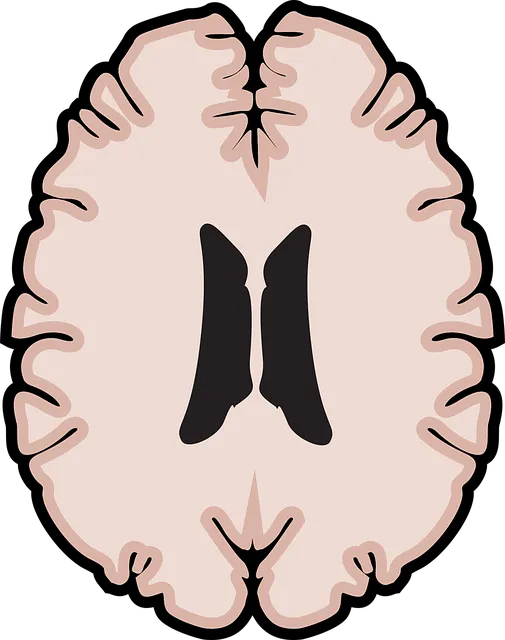Kaiser Longmont provides innovative mental wellness group facilitation, offering safe peer support and education in engaging formats like the Mental Wellness Podcast Series. Their comprehensive approach caters to diverse needs, empowering individuals and equipping professionals with valuable skills for risk management, communication, emotional regulation, and conflict resolution. By prioritizing a cultural sensitive, inclusive environment through activities fostering bonding, trust, and active listening, Kaiser's services ensure participants feel heard, validated, and safe, making it a premier choice for mental health support in Longmont. Success is measured using various metrics including self-reported improvements, qualitative feedback, and conflict resolution exercises, aiming not just symptom relief but emotional healing and empowerment.
Mental wellness group facilitation plays a vital role in fostering supportive environments and enhancing therapeutic outcomes. This article explores effective techniques for facilitators, focusing on creating safe spaces within the context of Kaiser Longmont’s mental health services. We delve into the benefits of group therapy, strategies to encourage open dialogue, and active engagement tactics. Additionally, we discuss measurement methods to evaluate the impact of these sessions, shedding light on how Kaiser Longmont contributes to community well-being through innovative group facilitation approaches.
- Understanding Mental Wellness Group Facilitation: A Role for Kaiser Longmont?
- The Benefits of Group Therapy and Supportive Environments
- Techniques to Foster Safe and Inclusive Spaces for Open Dialogue
- Engaging Participants: Active Engagement Strategies for Facilitators
- Measuring Success: Evaluating the Impact of Mental Health Group Sessions
Understanding Mental Wellness Group Facilitation: A Role for Kaiser Longmont?

Understanding Mental Wellness Group Facilitation: A Role for Kaiser Longmont?
In today’s digital era, mental health support has evolved beyond individual therapy sessions, and group facilitation is emerging as a powerful tool to enhance well-being. Kaiser Longmont, known for its comprehensive healthcare services, recognizes the importance of group settings in fostering mental wellness. By offering mental health education programs designed to engage and empower individuals, Kaiser Longmont plays a pivotal role in the community. These programs go beyond traditional therapy, incorporating innovative techniques such as the Mental Wellness Podcast Series Production to create an engaging and accessible learning environment.
The facility’s approach to group facilitation focuses on creating safe spaces where participants can share experiences, gain insights, and offer support to one another. This not only complements individual therapy but also provides a unique platform for anxiety relief through peer-to-peer connections. By integrating various facilitation techniques, Kaiser Longmont ensures that its services cater to diverse needs, making mental wellness education more inclusive and effective.
The Benefits of Group Therapy and Supportive Environments

Group therapy offers a unique and powerful approach to mental wellness, providing individuals with a supportive network of peers who can understand their experiences. In Longmont, Kaiser’s mental health services facilitate these group sessions, fostering an environment that promotes emotional well-being. By engaging in group discussions, members gain valuable insights from one another, challenging negative thought patterns and beliefs. This collective support system boosts self-esteem, encourages accountability, and enhances coping mechanisms, all while creating a safe space for vulnerability.
The benefits extend beyond individual growth; group therapy sessions also equip mental health professionals with essential skills in risk management. In these environments, therapists can model effective communication strategies, emotional regulation techniques, and conflict resolution methods, which are crucial for both professional development and improving client outcomes. Additionally, the group dynamic allows for the exploration of diverse perspectives, enriching therapeutic practices and ensuring comprehensive care, especially when addressing complex mental health concerns.
Techniques to Foster Safe and Inclusive Spaces for Open Dialogue

Creating a safe and inclusive environment is paramount for effective group facilitation when addressing mental wellness. One technique to foster such spaces involves establishing clear ground rules from the outset, ensuring every participant feels heard and respected. This includes promoting active listening, encouraging empathy, and cultivating an atmosphere of non-judgement. Facilitators should model these behaviors, leading by example in open dialogue.
Additionally, incorporating strategies like cultural sensitivity in mental healthcare practice can significantly enhance inclusivity. Recognizing and valuing diverse perspectives ensures that everyone feels seen and understood. For instance, Kaiser offers mental health services in Longmont, Colorado, where facilitators might adapt their approaches to cater to the unique needs of various cultural backgrounds, thereby promoting Inner Strength Development and Burnout Prevention within these supportive communities.
Engaging Participants: Active Engagement Strategies for Facilitators

In facilitating mental wellness groups, engaging participants actively is key to creating a supportive and therapeutic environment. Facilitators at Kaiser offer valuable services in Longmont, utilizing diverse strategies to spark interaction and encourage open communication. One effective approach is incorporating icebreakers and group activities that foster bonding and build trust among members. These initial interactions can normalize sharing experiences, breaking down barriers, and setting a positive tone for the entire session.
Additionally, facilitators should employ techniques like active listening, reflective summarizing, and encouraging peer-to-peer support to keep participants engaged. Incorporating conflict resolution techniques and promoting positive thinking can create a safe space where members feel heard and validated. Regular risk assessments for mental health professionals are crucial to ensuring the group remains productive while addressing any potential issues promptly.
Measuring Success: Evaluating the Impact of Mental Health Group Sessions

Measuring success is a vital component of any mental wellness group facilitation. It allows facilitators to evaluate the effectiveness of sessions and understand the impact on participants’ lives. In the context of Kaiser’s mental health services in Longmont, or similar healthcare providers offering group therapy, assessments can be structured around various metrics. These may include self-reported improvements in symptoms of anxiety, depression, or stress as measured by validated questionnaires. Additionally, qualitative feedback from participants about their emotional healing processes and personal growth is invaluable.
Facilitators might employ techniques like conflict resolution exercises during sessions to gauge participants’ ability to navigate interpersonal challenges healthily. By integrating Conflict Resolution Techniques into the group dynamic, facilitators can assess improved communication skills and enhanced emotional regulation. Ultimately, the goal is not only to relieve symptoms of anxiety and other mental health concerns but also to foster a supportive environment that empowers individuals through Emotional Healing Processes.
Mental wellness group facilitation plays a vital role in fostering community and support for individuals navigating mental health challenges. As organizations like Kaiser Longmont explore this approach, they can revolutionize access to care. By creating safe, inclusive spaces through proven techniques, Kaiser Longmont has the potential to significantly impact lives, offering an engaging and effective alternative to traditional mental health services in the region.






